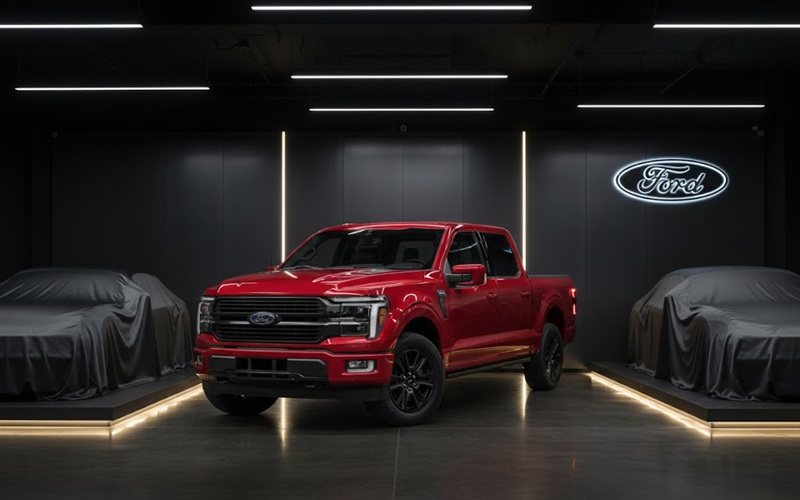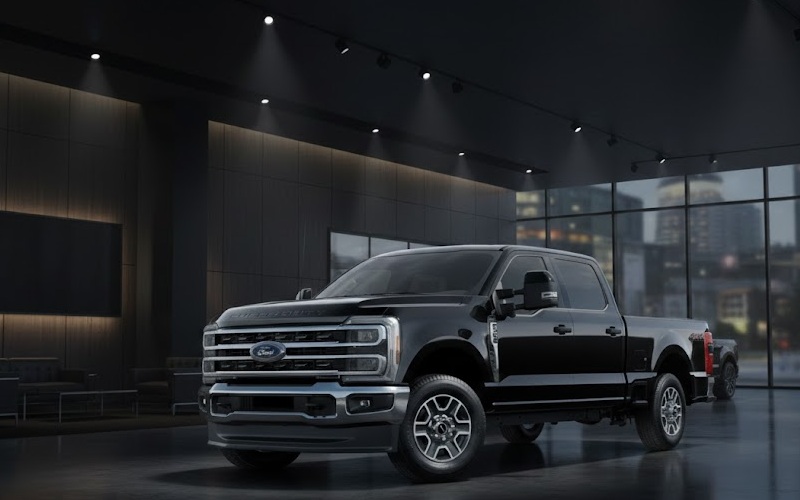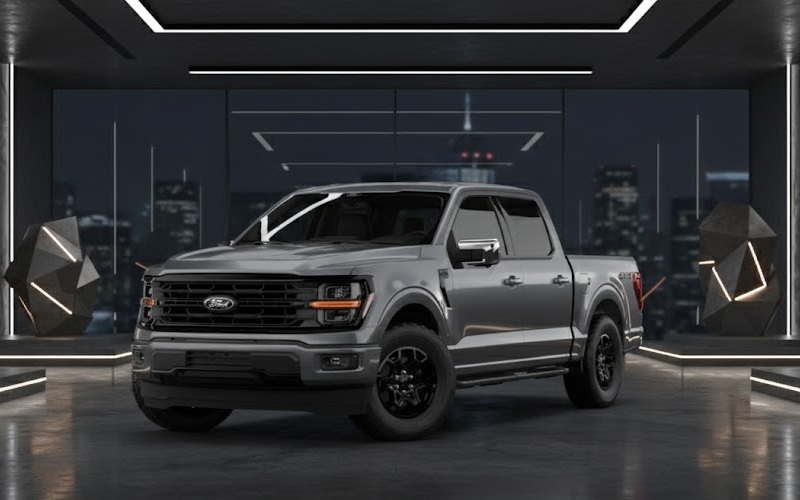As the automotive industry moves towards greater fuel efficiency and reduced emissions, Ford has introduced hybrid technology into several of its vehicles. With the Ford Ranger, the introduction of a hybrid engine is a significant step forward, combining the rugged capability of the Ranger with improved efficiency and environmental consciousness.

The 2025 Ford Ranger Hybrid Engine
The Ford Ranger Hybrid is expected to feature a turbocharged gasoline engine paired with an electric motor and a battery pack. This setup will enhance both power and fuel economy while reducing emissions.
Anticipated Powertrain Configuration
- Engine Type: 2.3-liter EcoBoost inline-4 (turbocharged gasoline engine)
- Electric Motor: Integrated hybrid assist system
- Battery: Lithium-ion battery pack
- Transmission: 10-speed automatic with hybrid optimization
- Drivetrain: Rear-wheel drive (RWD) or all-wheel drive (AWD)
This eco-friendly system is expected to deliver a higher torque output, improving both acceleration and towing capabilities compared to the standard gasoline variant.
Performance: Power and Torque Expectations
Hybrid powertrains improve low-end torque while maintaining high performance. The Ranger will most likely produce:
- Power Output: Estimated 235–250 kW (315–335 hp)
- Torque: Expected 550–600 Nm
This power makes it stronger than the standard 2.3-liter EcoBoost engine and comparable to the 2.7-liter V6 EcoBoost found in higher trims. The electric motor provides instant torque, which is particularly useful for off-roading, towing, and urban driving.
Fuel Efficiency and Environmental Benefits
A key advantage of the Ford Ranger Hybrid is its improved fuel economy compared to traditional gasoline and diesel models. Below is an estimated comparison of fuel consumption in liters per 100 kilometers (L/100 km):
| Engine | Estimated Fuel Consumption |
| 2.3L EcoBoost (Gasoline) | 8.5–9.5 L/100 km |
| 2.7L EcoBoost V6 (Gasoline) | 9.8–10.8 L/100 km |
| 2.0L Bi-Turbo Diesel | 7.5–8.5 L/100 km |
| 2.3L Hybrid Powertrain | 5.5–7.0 L/100 km |
The fuel efficiency of the Ford Ranger makes it an excellent choice for drivers seeking to minimize fuel costs and environmental impact without compromising power. The regenerative braking system further optimizes efficiency by converting energy into electricity during braking.
Lower CO₂ Emissions
Since hybrid engines consume less fuel, they produce fewer carbon emissions, allowing this environmentally friendly pickup truck to meet stricter environmental regulations and offer a greener alternative to traditional gasoline-powered trucks.
Towing and Payload Capacity
Ford trucks are known for their strong towing and payload capabilities, and the Ranger Hybrid is no exception. While exact numbers are yet to be confirmed, estimates suggest:
- Towing Capacity: Up to 3,000 kg (depending on drivetrain and configuration)
- Payload Capacity: Approximately 1,000 kg
The electric motor’s additional torque will be particularly beneficial when towing heavy loads or carrying equipment, making it an excellent choice for both work and recreational use.
Off-Road Performance: How the Hybrid System Helps
The Ford Ranger has always been a capable off-roader, and the hybrid variant continues this tradition. Several features make the Ranger Hybrid well-suited for off-road adventures:
Instant Torque for Better Traction
The electric motor provides immediate power, which is helpful when climbing steep terrain or driving over rough surfaces. Unlike traditional gasoline engines, hybrid systems don’t need to rev up to produce peak torque.
All-Wheel Drive (AWD) Optimization
The drivetrain is expected to include an advanced AWD system with:
- Selectable drive modes for sand, mud, snow, and rock crawling
- Electronic locking differentials for better traction
- Improved weight distribution for better stability
Quieter Operation
Hybrid engines run more quietly than traditional gasoline engines, which is beneficial for off-roading in natural areas or approaching wildlife without disturbing them.
How the 2025 Ranger Hybrid Compares to Gasoline and Diesel Models
Performance and Acceleration
The Ranger Hybrid is likely to accelerate faster than the 2.3l EcoBoost due to the instant torque provided by the electric motor. It may even compete with the 2.7L EcoBoost V6 in terms of power delivery.
Fuel Economy Advantage
Compared to gasoline models, the hybrid engine consumes less fuel, making it a more cost-effective choice for long-distance drivers. The diesel version still provides excellent fuel economy, but the hybrid offers lower emissions and better acceleration.
Maintenance and Longevity
Hybrid engines require less maintenance than traditional gasoline or diesel engines because:
- They experience less engine wear due to electric motor assistance
- They use regenerative braking, reducing brake pad wear
- They operate at lower temperatures, extending component life
Compared to diesel models, the Ranger Hybrid eliminates concerns such as DPF (Diesel Particulate Filter) clogging and DEF (Diesel Exhaust Fluid) maintenance.
Future of Hybrid and Electrification in the Ford Ranger
The Ford Ranger Hybrid is likely just the beginning of the Ford electrification strategy for mid-size trucks. Potential future developments may include:
- Plug-in Hybrid (PHEV) version with a larger battery for electric-only driving
- Full-electric Ford Ranger EV, similar to the Ford F-150 Lightning
- Further enhancements in battery technology for increased range and performance
As Ford continues to develop electric-focused powertrains, the Ranger lineup will offer more efficient and powerful options in the years to come.
2025 Ford Ranger Hybrid: Power and Efficiency
The Ford Ranger Hybrid brings a modern, fuel-efficient, and powerful option to the mid-size truck market. With its turbocharged engine, electric motor assistance, improved fuel efficiency, and off-road capabilities, it stands out as a strong alternative to traditional gasoline and diesel models.
For drivers seeking a balance of power, efficiency, and lower emissions, the Ford Ranger is a game-changing choice. Whether for daily commuting, towing, off-roading, or work applications, this hybrid truck will redefine what a mid-size pickup can do.
As the automotive industry moves toward sustainability, the Ford Ranger demonstrates that power and efficiency can coexist.






